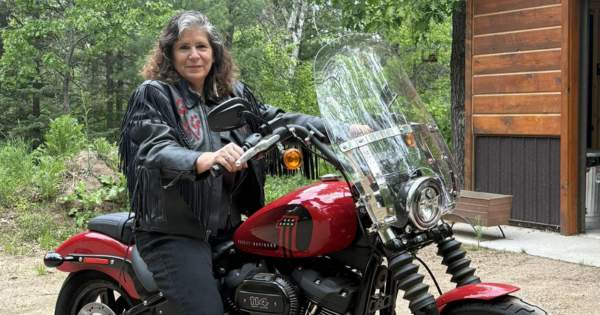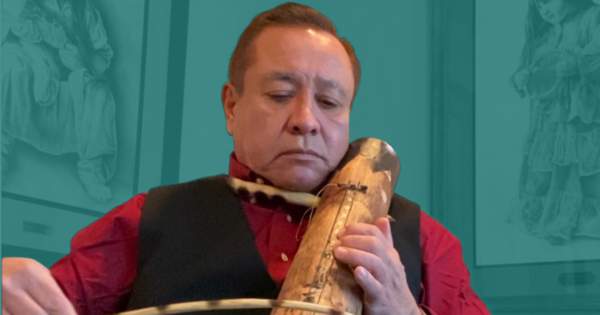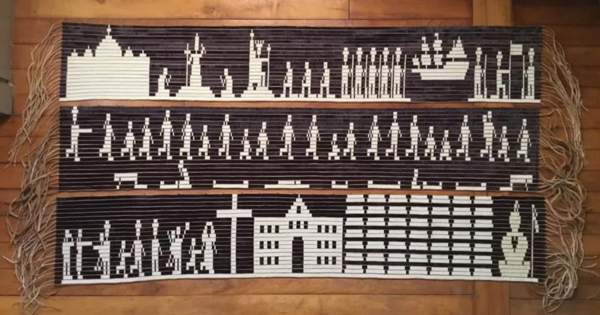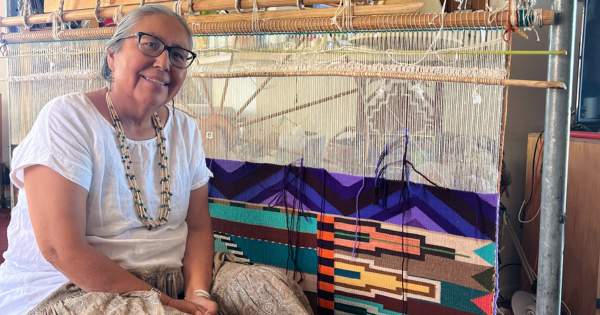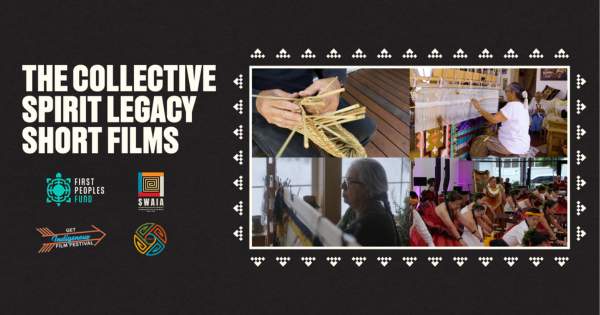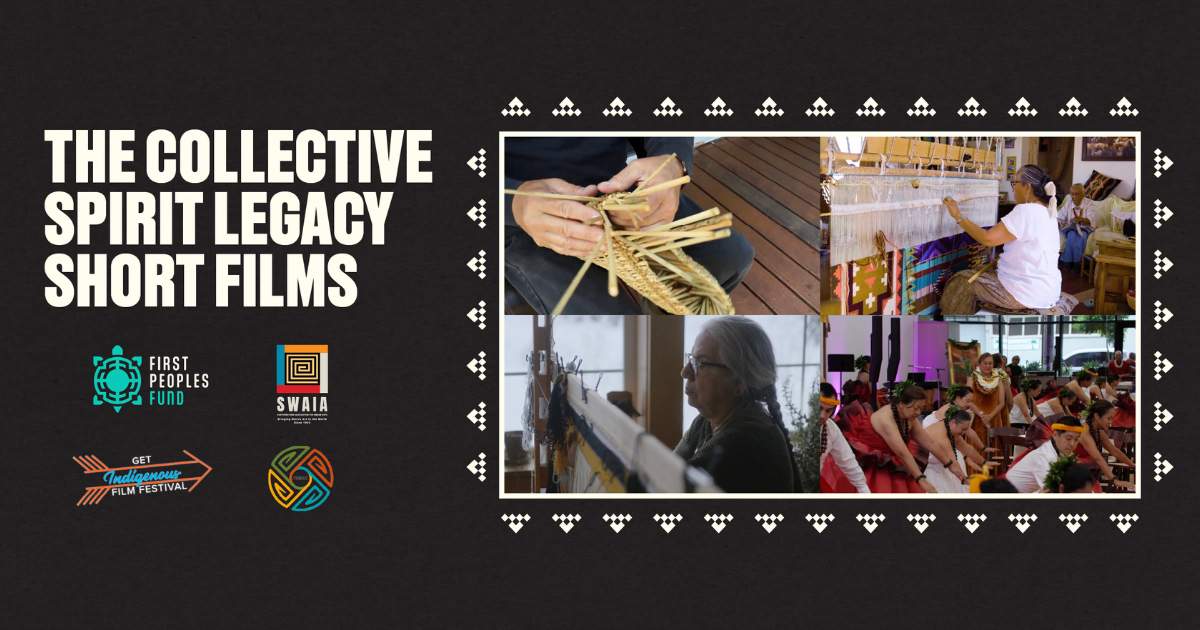
Hosting ArtChangeUS REMAP: Pine Ridge: “Reclaiming Our Way of Knowing”
By Sarah Elisabeth Sawyer (Choctaw Nation), Artist in Business Leadership Fellow 2015
A cultural exchange intended to immerse ArtChangeUs attendees in the Lakota story also worked to empower individual Native artists. Molina Parker (Oglala Lakota) came into the space at Racing Magpie in Rapid City, South Dakota for a collaborative art piece with Tasha Abourezk (Three Affiliated Tribes). Together, they drew people with ArtChangeUs REMAP into a group project that bonded them.
“We felt like we could trust each other,” Molina says. Both she and Tasha are former First Peoples Fund Artist in Business Leadership fellows. “There was a cultural exchange, and I found that empowering. Everyone was willing to listen to each other.”
First Peoples Fund welcomed the REMAP program to Lakota Territory in Pine Ridge and Rapid City, South Dakota, where everyone experienced a greater understanding of the climate, the people, and one another. ArtChangeUS REMAP: Pine Ridge: “Reclaiming Our Way of Knowing” engaged Native and non-Native artists, educators, activists, and changemakers in two days of immersive cultural experiences.
Arts in a Changing America director Roberta Uno says, “It was moving to hear Mary Bordeaux talk about coming to Rapid City as a child and not feeling welcome as a Lakota — and now a Lakota led-space is redefining what an arts center can be — inclusive of heritage and contemporary, as well as all people.”
The REMAP: Pine Ridge program encompassed diverse cultures and brought together people from New York, Hawai’i, Alaska, and places in between. Representatives from valued First Peoples Fund partners such as ArtPlace America and the Bush Foundation joined in the REMAP effort. We welcomed many who haven’t had the opportunity to visit the area. This led to connecting our artist fellows with larger national organizations.
“Many hands went into the effort, and it showed in every way,” Roberta says.
An initiative based out of the California Institute of the Arts, the ArtChangeUS mission is to reframe the national arts conversation by embracing the cultural assets of demographic change. REMAP is one of their primary programs. It focuses on bringing together an exceptional mix of leading artists, activists, scholars, and changemakers for cultural exchanges.
This was fulfilled in Lakota Territory with artist workshops, poets, educators, and other passionate presenters. The experience brought a better understanding for visitors of how much the area has to offer.
“There’s a Hawaiian proverb ‘Ma ka hana ka ʻike’ — basically, one learns by doing,” Roberta says. “All the artistic workshops by Mike Marshall, Molina Parker, Tasha Abourezk, Ohitika Locke, Tanaya Winder, and others were brilliant and it was a wonderful time to get to know each other and enjoy each participant’s company. Racing Magpie was ideal for these artistic exchanges; it is an inviting and inspiring space.”
In a full immersion experience that included grounding at He Sapa (Black Hills), the group had the opportunity to visit the Pine Ridge Reservation and Red Cloud Indian School Heritage Center.
“We were able to share the Lakota culture on Pine Ridge, the art that is being made there,” Mary Bordeaux (Sicangu/Oglala Lakota) says. She is the Vice President of Programs and Operations at First Peoples Fund. “It was good to bring all of those national folks to participate, see what we’re doing, and appreciate it.”
The project served to remap and recreate the image of Lakota people and their lifeways in modern times. While Native people honor and preserve traditions — mainly through art — their lives today are far removed from the romanticized version so firmly embedded in mainstream culture.
“A lot of people don’t realize that we use iPhones, we’re all on the internet,” Molina says. “We’ve started new traditions with art forms. We have a rich culture, and we want to share that with people.”
The workshop, led by Molina and Tasha, of creating quilt squares mixed with beading was a representation of how art can reshape demographics and bridge gaps. Tasha is sewing the pieces together to form a wall hanging as a reminder of the shared experience during the workshop.
“We were all laughing, enjoying ourselves, telling stories while we worked,” Molina says. “Some of these people are directors of their organizations, and I didn’t know that going in. But no one had airs. Everyone just came and had fun. It brought us together, and I think that’s what art does.”
“We were all laughing, enjoying ourselves, telling stories while we worked. Some of these people are directors of their organizations, and I didn’t know that going in. But no one had airs. Everyone just came and had fun. It brought us together, and I think that’s what art does.”
— Molina Parker (Oglala Lakota), Artist
The REMAP: Pine Ridge program ended with time spent at Wounded Knee where print artist and 2018 Artist in Business Leadership fellow Micheal Two Bulls spoke about the history of the area.
The moment etched itself in Roberta’s conscious. “Ending with Micheal’s talk at Wounded Knee as the sun was setting reminded us again of why we do the work we do and how ancestors must be remembered through the work we do for future generations.”
Those who attended the REMAP: Pine Ridge program came to know more about the arc of history that serves as context for today, and how the resilient practices of Lakota artists and culture bearers are foundational to the future.
“The various sessions built on each other dynamically,” Roberta says. “I appreciated the opportunities to hear, experience, and exchange.”
While the participants in the program came to a better understanding of Lakota people’s history and their story today, those hosting felt change within themselves as well.
“We don’t get many people that are as open-minded as they are,” Molina says. “That’s important for us because it makes us feel good about sharing our story. We live in an extreme area and have to be strong and resilient. Having something like this helps to soften our edges. It’s nice to not have that guard up with people who are so interested in what we say and what we do.”
The REMAP: Pine Ridge program was supported by the Bush Foundation, Ford Foundation, Hewlett Foundation, and HRK Foundation.

